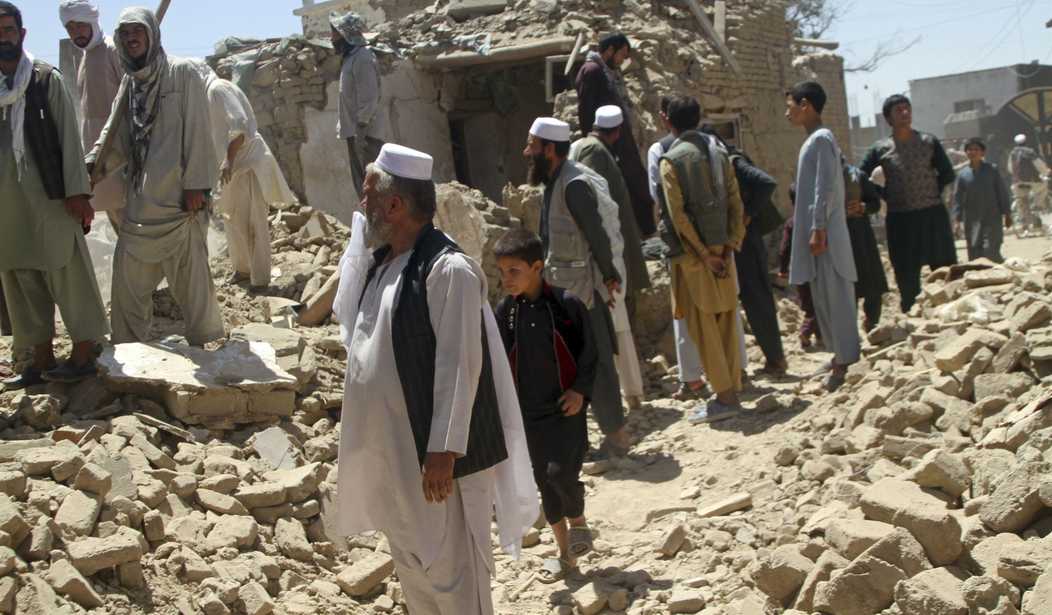About 200 Afghan interpreters and their families arrived in Virginia on Thursday, the first planeload to be evacuated in the waning days of the American military withdrawal from Afghanistan. The refugees will be processed over the next several days and then resettled across the country.
Joe Biden issued a statement on the evacuation, saying, “Today is an important milestone as we continue to fulfill our promise to the thousands of Afghan nationals who served shoulder-to-shoulder with American troops and diplomats over the last 20 years in Afghanistan.”
The number of at-risk Afghans is far larger than the president hints at. It’s not just interpreters who are at risk. It’s the many thousands of civilian employees of the U.S. military and military contractors who are threatened by Taliban retribution.
The new arrivals are the first to take advantage of the Special Immigrant Visa program set up specifically to deal with at-risk civilians in Afghanistan.
But the first flight is a small fraction of thousands of Afghans who have spent years in bureaucratic limbo waiting for their visas to be approved after the rigorous and, many say, at times confounding screening process.
About 20,000 Afghans had applied for the special immigrant visa as of July 15, according to the White House. That number does not include family members; a U.S. official, speaking on the condition of anonymity to offer an estimate, said the total number of people in the applicant pipeline including family members could be as high as 100,000.
That is more than the roughly 74,000 Afghans resettled in the program since it began in 2008, according to the State Department.
The red tape from the program has slowed the approval process down to a crawl. Only the personal intervention of Trump Secretary of State Mike Pompeo cleared away some of the clutter to expedite the process.
Related: Secretary of State Blinken Calls China’s New Role in Afghanistan ‘a Positive Thing’
It may already be too late for many of the interpreters.
The Association of Wartime Allies, an interpreter advocacy group, estimates that about half of the applicants still waiting live outside Kabul. Many roads outside the capital are dotted with Taliban checkpoints,and commercial flights are disappearing in some cities as clashes threaten airport operations.
“The reality is some of these people are going to die. Why didn’t the U.S. military evacuate them when we had the ability?” asked Matt Zeller,a former Army officer and board chair of the advocacy group. He said Biden administration officials ignored his warnings in January to prepare for mass evacuations.
Congress approved an extra $1 billion to pay all the costs associated with the evacuation. But that won’t help the Afghan interpreters who worked for U.S. contractors, most of whom have simply abandoned their employees to fend for themselves.
It’s an ignominious end to what was once a noble effort. The fallout from our defeat will resonate across the region as China, India, and Pakistan move into the power vacuum caused by the U.S. retreat.










Join the conversation as a VIP Member